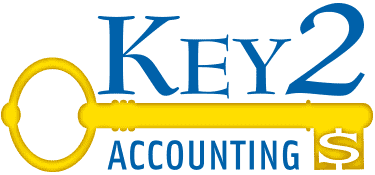Self-employment offers unmatched flexibility, creative control, and independence—but it also comes with its fair share of responsibilities. Chief among them? Self-employment tax. Whether you’re a freelancer in Fort Collins, a small business owner in Hawaii, or a remote consultant anywhere in the U.S., understanding this tax is essential to maintaining your business’s financial health.
What exactly is self-employment tax? How does it compare to traditional payroll tax? What deductions can you claim to lower your tax burden—and how can a trusted CPA make your life easier?
At Key2 Accounting, we help self-employed individuals navigate these questions every day. This guide breaks down what you need to know, what pitfalls to avoid, and how proper business accounting services can save you time, stress, and money.
TL;DR Quick Guide
- What Is It? A tax covering Social Security and Medicare for self-employed individuals.
- What’s Taxed? 92.35% of your net earnings.
- Key Differences: You pay both employer and employee portions of payroll tax.
- Must-Do: Estimate and pay taxes quarterly to avoid penalties.
- Top Deductions: Home office, mileage, COGS, insurance, and professional fees.
- Watch Out: Additional Medicare tax, legal updates, and exemption rules.
- Pro Tip: Working with a CPA can help maximize deductions and reduce audit risks.
What Is Self-Employment Tax?
If you’re working for yourself, you’re both the boss and the employee. That means you’re responsible for paying self-employment (SE) tax, which consists of 12.4% Social Security tax and 2.9% Medicare tax on your net business earnings. This differs from a traditional W-2 employee, where those taxes are split between employee and employer.
In 2025, Social Security tax applies to earnings up to $176,100, while the Medicare tax has no cap. For high earners, there’s an additional 0.9% Medicare tax if income exceeds $200,000 (single) or $250,000 (married).
The SE tax applies to 92.35% of your net business income. Understanding this calculation is crucial for estimating what you’ll owe.
What Income Is Subject to SE Tax?
Your net earnings—after business expenses—determine your self-employment tax. That’s why meticulous bookkeeping is essential. Here’s what you can often deduct:
- Home Office Deduction
Use part of your home regularly for business? Deduct related expenses like utilities, mortgage interest, or rent. - Cost of Goods Sold (COGS)
Retailers or product-based businesses can deduct direct production costs, like materials and labor. - Mileage & Vehicle Expenses
You can deduct mileage or actual vehicle expenses for business-related travel. - Professional Services
Legal fees, bookkeeping, CPA services, and marketing consultants can all be deductible. - Advertising & Marketing
Website hosting, digital ads, print materials—if it promotes your business, it may be deductible. - Travel & Meals
Business-related travel and 50% of meals can be deducted. - Business Insurance & Education
Protecting and improving your business can lower your taxable income.
Pro Tip: Want to make sure you’re capturing every deduction possible? Our CPA team in Fort Collins and Hawaii offers expert business accounting services for clients nationwide.
Self-Employed vs. Employee: The Big Picture
When you’re self-employed, you’re wearing all the hats—from operations and client services to compliance and taxes. Here’s how it stacks up against traditional employment:
| Feature | Employee | Self-Employed |
| Tax Withholding | Done automatically | Must calculate & pay quarterly |
| Payroll Tax Split | Employer pays half | You pay both parts |
| Health Insurance | Employer-sponsored | Deduct premiums yourself |
| Retirement Plans | 401(k) through employer | Set up own plan (SEP IRA, Solo 401(k)) |
| Business Risk | Low | All on you |
Being your own boss is rewarding—but it’s essential to approach your financial responsibilities with a solid strategy.
Estimating & Paying Your Tax
Instead of automatic paycheck deductions, self-employed individuals must prepay taxes quarterly using Form 1040-ES. This includes both income tax and SE tax.
Missing deadlines can lead to penalties, so plan accordingly—especially if your income fluctuates. Consider “safe harbor” payment strategies or using last year’s tax liability as a guide.
Who Is Exempt from SE Tax?
Not every self-employed individual pays SE tax. You may be exempt if you earn from:
- S Corporation distributions
- Notary public fees
- Rental income, unless it’s business-related
- Statutory employees with taxes withheld by employers
- Certain clergy, non-resident aliens, and limited partners
These exemptions can lead to significant savings—but they require careful documentation and understanding of IRS rules.
Key Challenges & How to Avoid Them
- Quarterly Payments Strain Cash Flow
Plan ahead with monthly budgeting and reserve accounts. - Complex Deductions
Partner with a CPA to avoid missing or misclassifying deductions. - Regulatory Updates
Tax laws change regularly. A good accounting partner will keep you informed. - Business Structure Matters
Choosing an LLC, sole proprietorship, or S Corp affects your tax liability. This is one area where consulting with Key2 Accounting can pay for itself.
Need help figuring out your ideal structure or preparing quarterly taxes? Our small business accounting services are designed to give you clarity and peace of mind.
Final Thoughts
Navigating self-employment tax is more than a box to check—it’s part of building a resilient, successful business. From deductions to payment planning and legal compliance, it pays to understand your obligations and optimize your strategy.
At Key2 Accounting, we see your financial landscape as an opportunity. Our goal is to give you confidence in your numbers, your future, and your ability to focus on what you do best—running your business.
Ready to Simplify Your Self-Employment Taxes?
Contact Key2 Accounting today for friendly, prompt, and expert advice on self-employment taxes, bookkeeping, and small business accounting.
Serving clients locally in Fort Collins and Hawaii—and remotely across the U.S.

